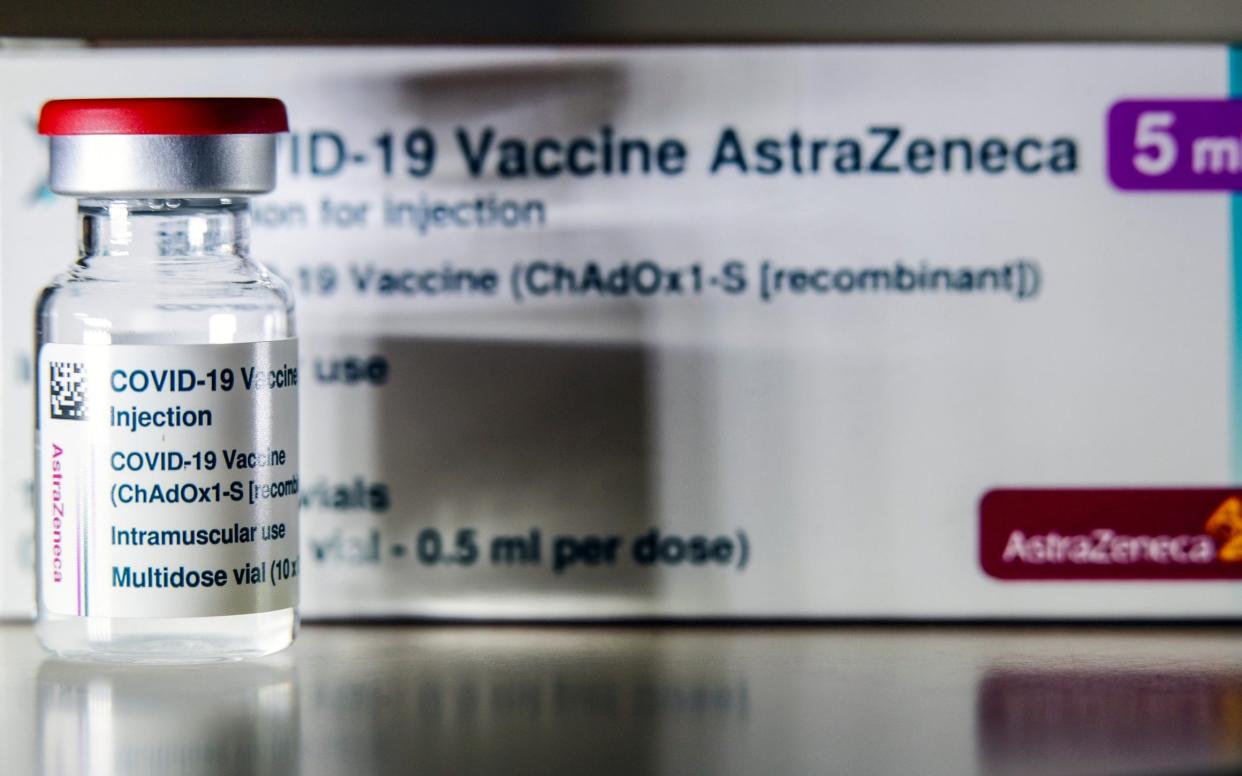Link between cerebral blood clots and AstraZeneca vaccine 'not implausible', says German regulator

The number of people suffering cerebral blood clots after receiving the AstraZeneca jab in Germany was “statistically significantly higher” than the number that would have been expected in the general population, according to a report from the German vaccine regulator.
The document from the Paul Ehrlich Institute explains the rationale behind the country’s decision to suspend the AstraZeneca jab, alongside 16 other countries including France, Italy and Spain, after reports of people suffering blood clots post-vaccination.
On Tuesday the European Medicines Agency (EMA) said there was "no indication" that the vaccine caused fatal blood clots, but it will publish its full findings on Thursday.
Many experts have criticised the suspension, warning that leaving people unvaccinated when the number of cases is rising in Europe poses a far greater risk.
As of March 15, seven people in Germany had suffered a severe cerebral venous thrombosis, known as thrombocytopenia, between four and 16 days of receiving the Oxford-AstraZeneca jab. Three of these people have since died.
According to a statistical analysis carried out by the regulator just one person would have been expected to suffer this event out of the 1.6 million people in Germany who have received the AstraZeneca vaccine.
"The number of these cases after vaccination with [the AstraZeneca vaccine] is statistically significantly higher than the number of cerebral venous thromboses that normally occur in the unvaccinated population,” the report states.
"All experts agreed unanimously that a pattern could be discerned here and that a connection between the reported above-mentioned diseases and the vaccination with Covid-19 vaccine AstraZeneca was not implausible,” it added.
Cerebral venous thrombosis is much rarer than the deep vein thromboses or pulmonary embolisms reported by Denmark, Norway and Austria last week. It can lead to swelling in the brain and haemorrhage. The seven people - six of whom were women - who suffered the condition were aged between 20 and 50.
The condition is about three times as common in women, and is linked to pregnancy and the contraceptive pill, according to research in the BMJ.
“Last week it looked as if the problems that had occurred were ordinary thromboses. They are quite common,” Anke Huckriede, professor of vaccinology at the University of Groningen in the Netherlands, said.
“Now there is apparently newer information that it is a very rarely occurring form of thrombosis, of which some cases now seem to have occurred shortly after vaccination.”
In the report, the German vaccine regulator also addresses the point, raised by many on social media, that taking the contraceptive pill carries a higher risk of contracting thrombosis. It says the contraceptive pill is only available on prescription and thromboses are clearly listed as a side effect, with doctors warning patients about this.
The institute said that people who have received the AstraZeneca vaccine and who feel increasingly unwell more than four days after the vaccination - "with severe and persistent headaches or pinpoint bleeding on the skin" - should seek medical attention immediately.
Dr Phil Bryan, vaccine safety lead at the UK regulator, the Medicines and Healthcare Products Regulatory Agency, said the benefits of the vaccine “far outweigh the risks”.
“Our role is to continually monitor safety during widespread use of a vaccine. We have in place a proactive strategy to do this. We also work closely with our public health and international partners in reviewing the effectiveness and impact of the vaccines to ensure the benefits continue to outweigh any possible side effects," he said.
Protect yourself and your family by learning more about Global Health Security

